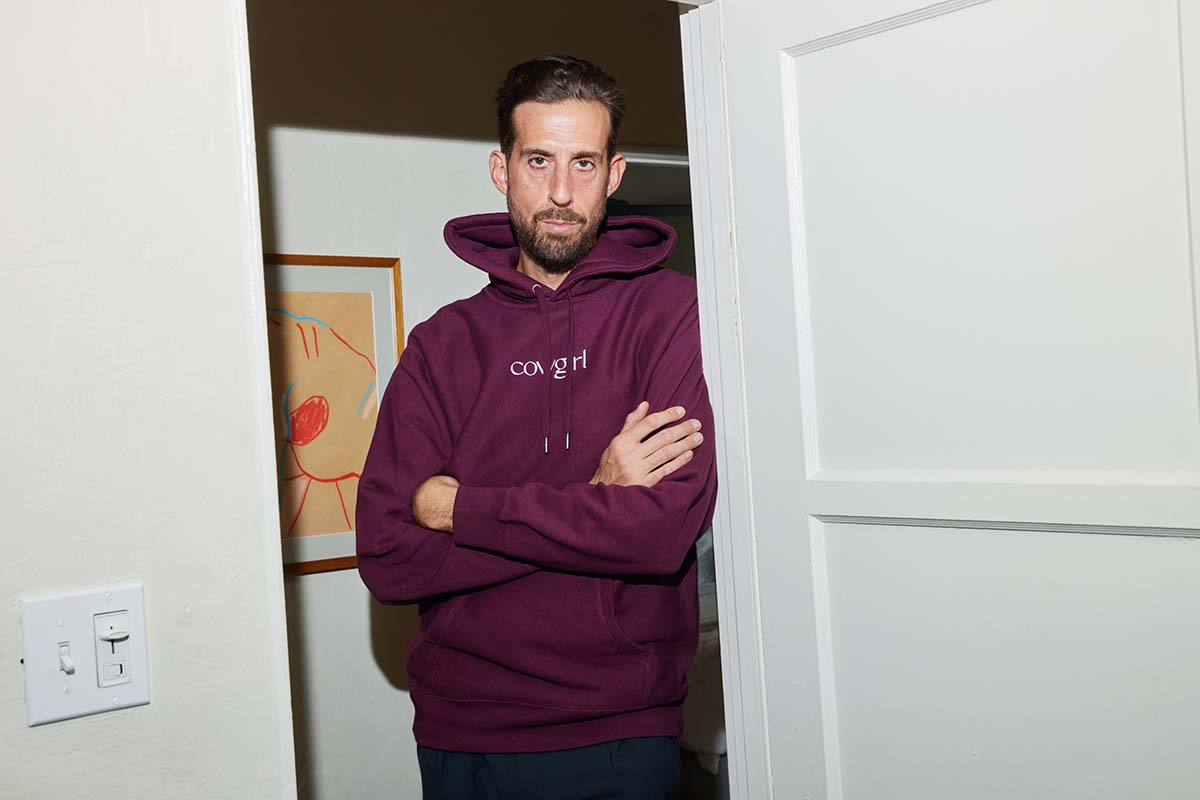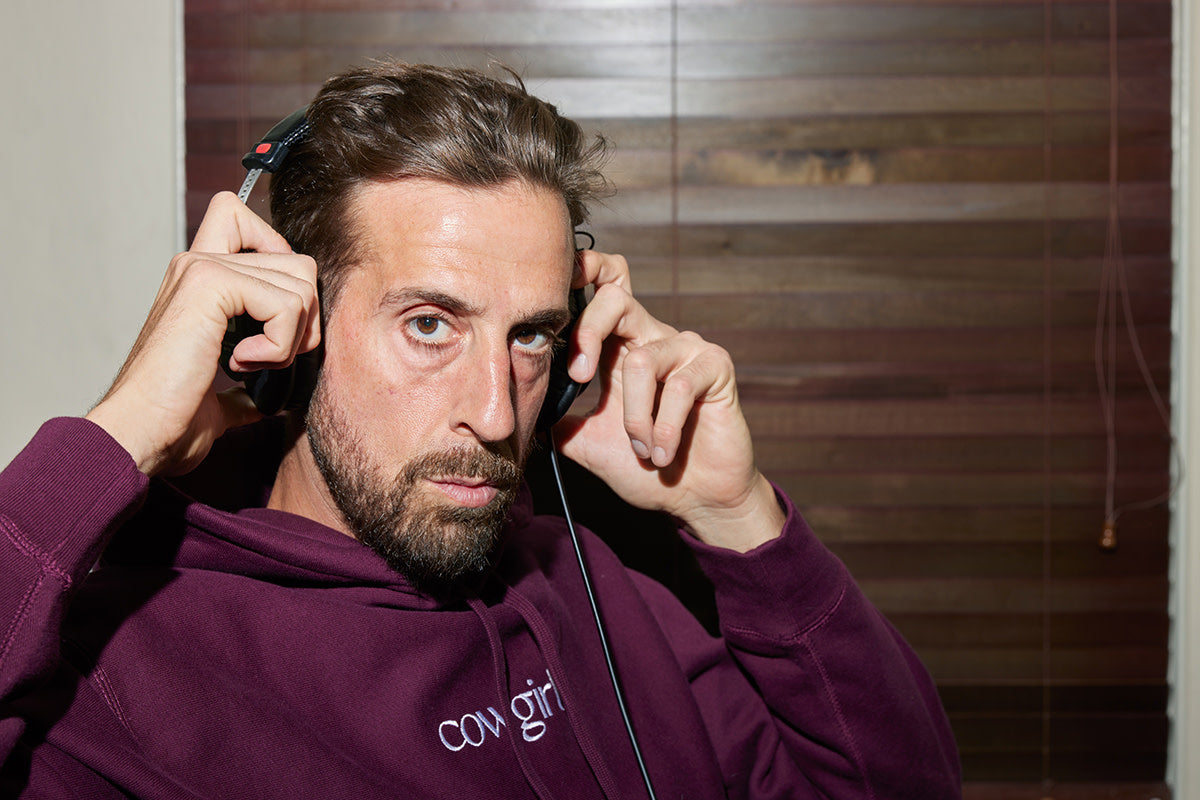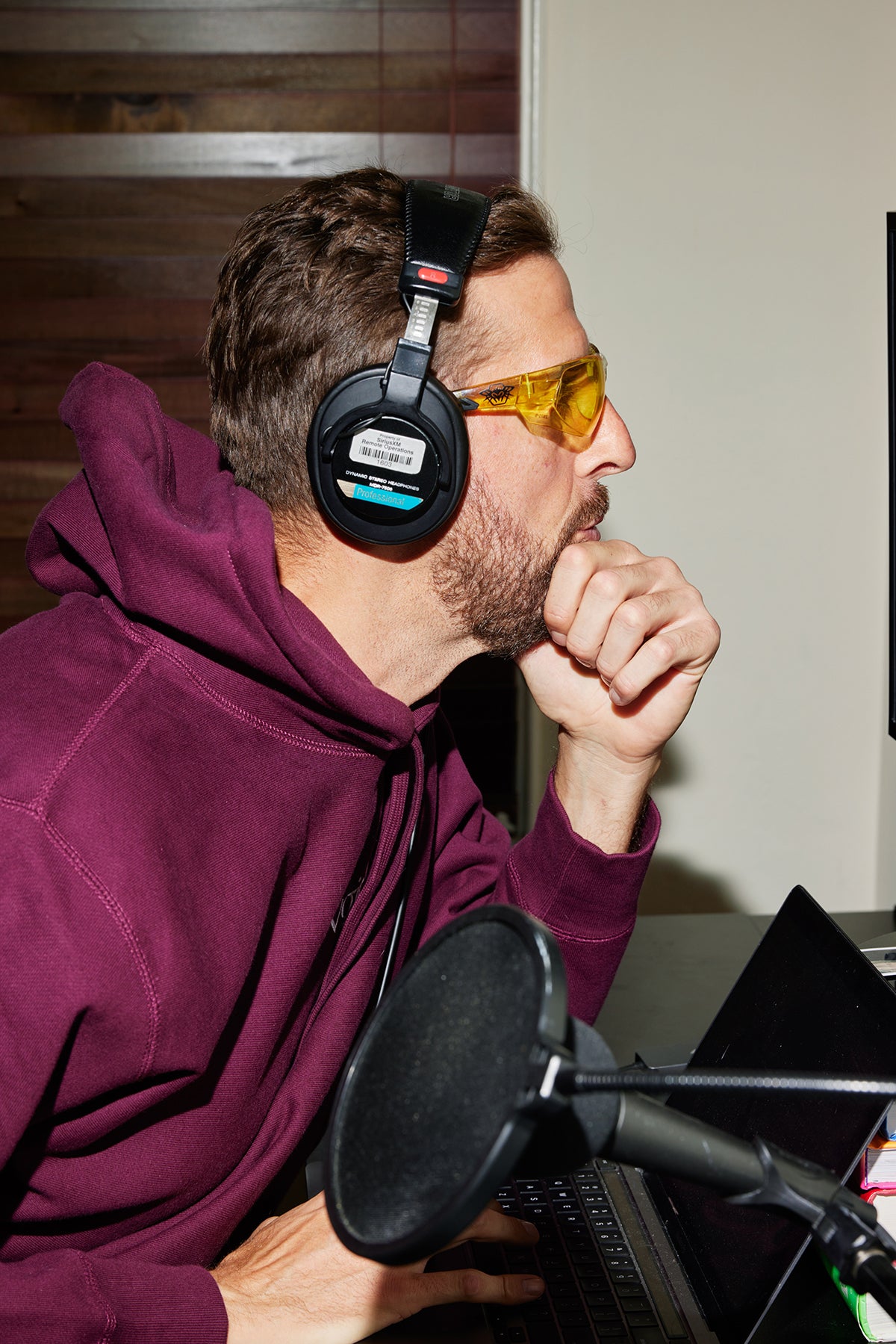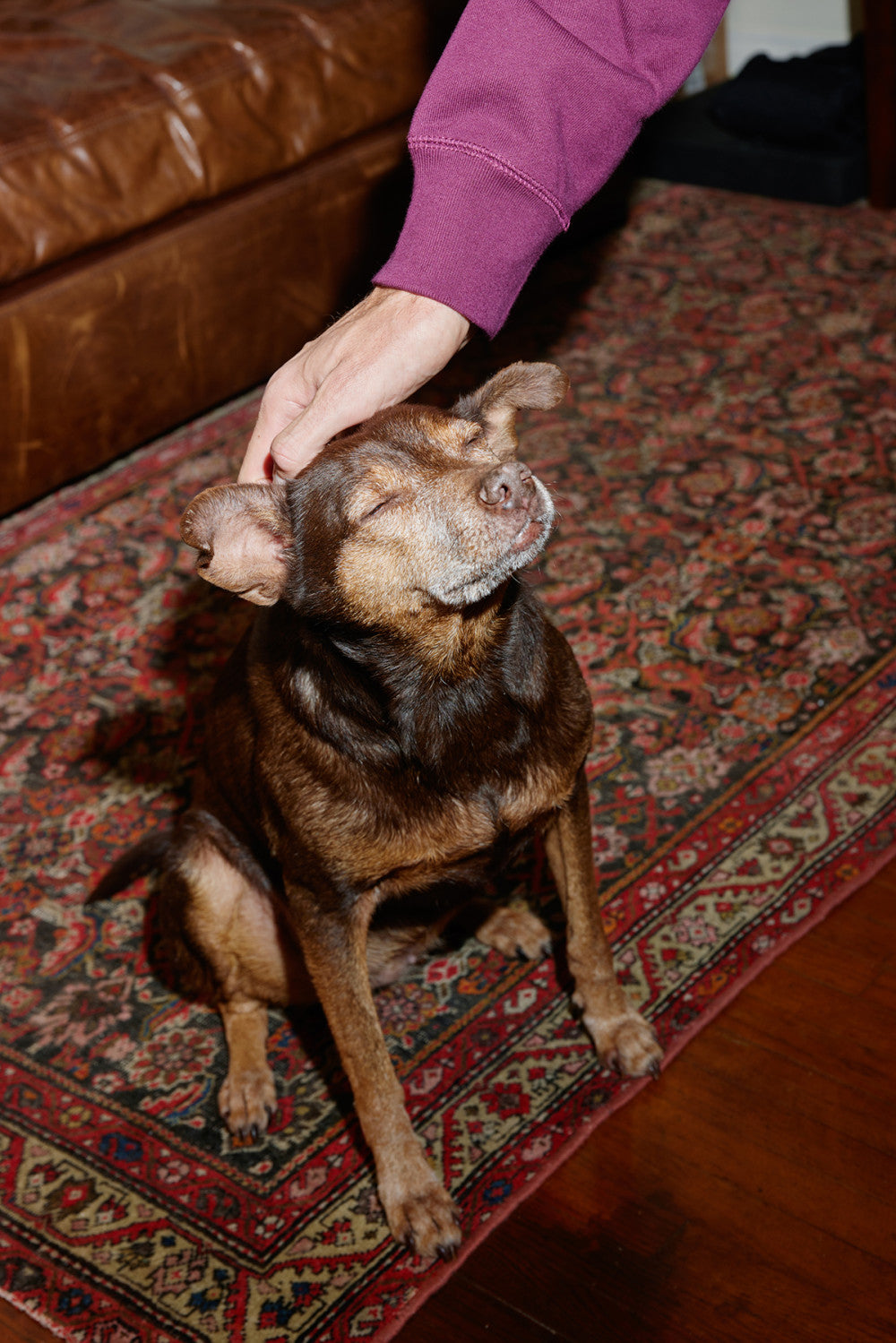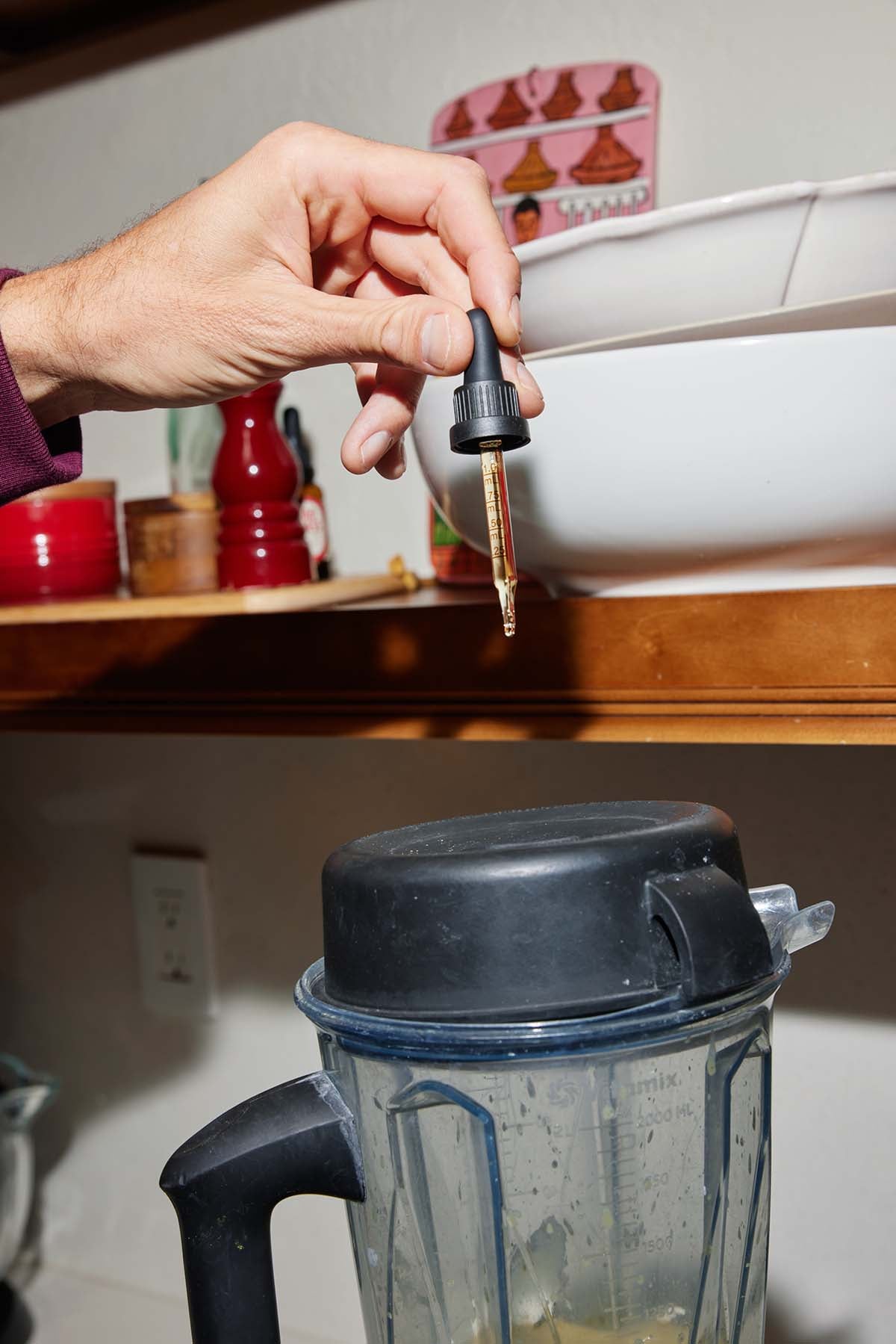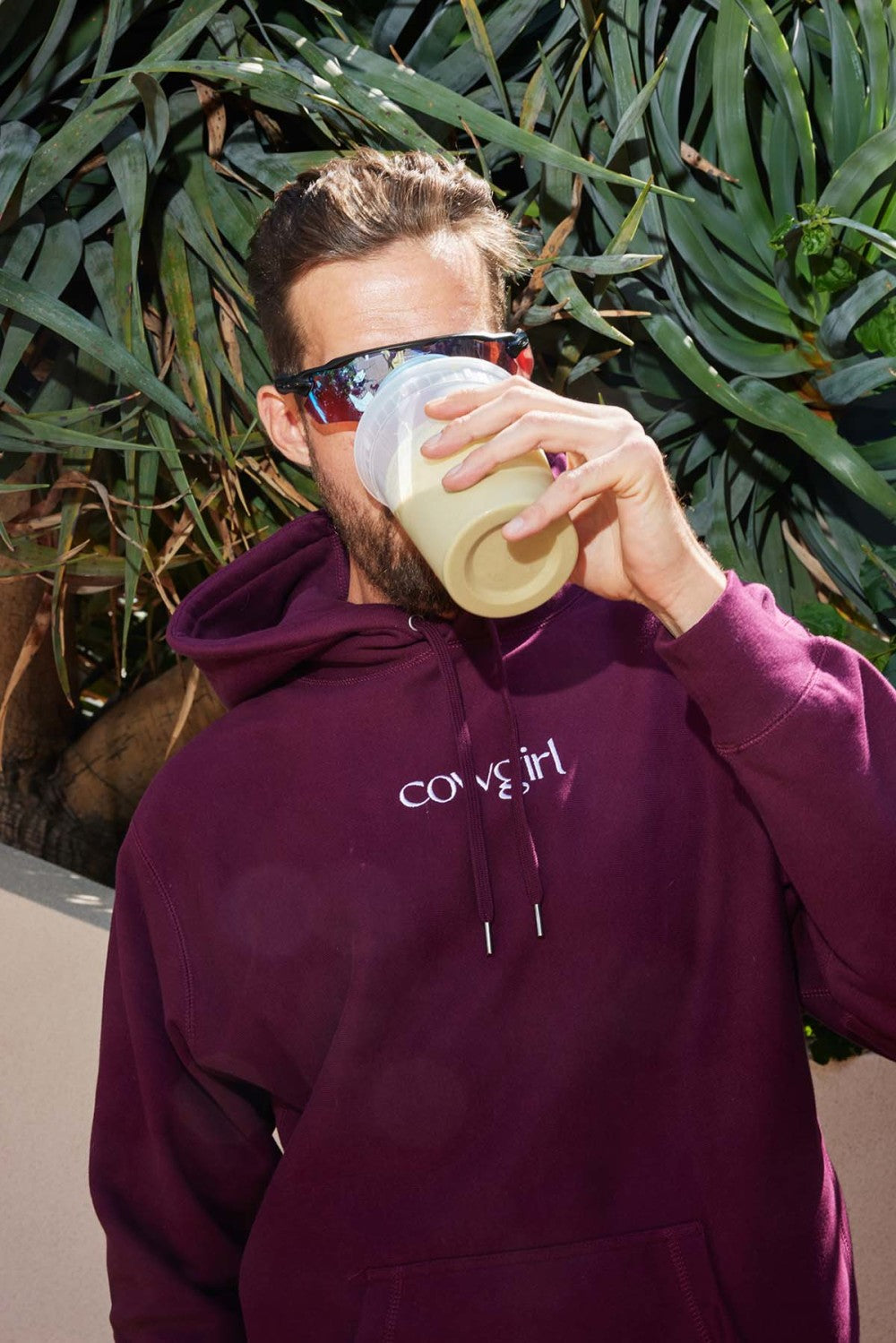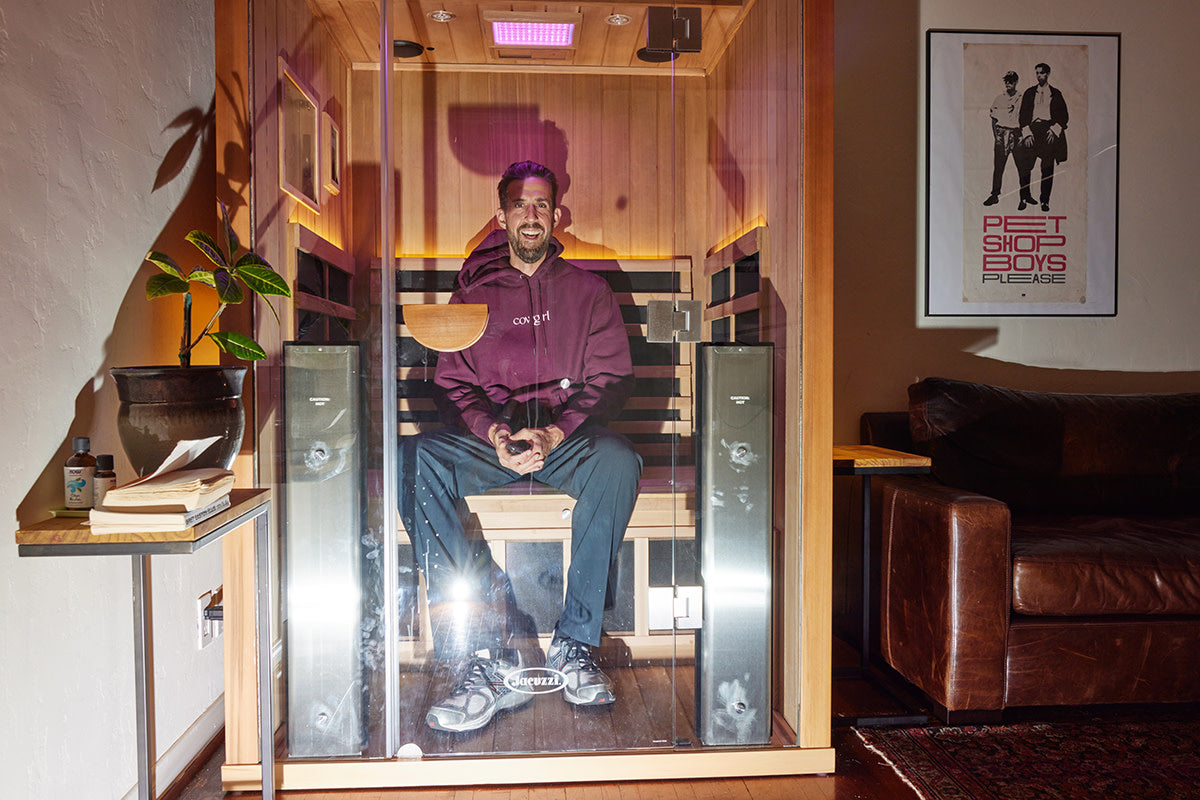
The podcast host on bad interviews, super stoney home-cooked meals, and why DJing is a young person’s game.
AS TOLD TO GOSSAMER
This Conversation is featured in Gossamer Volume Eight: the Space issue, which is on newsstands and available to order now.
I’m extremely tall—that’s what most people know me for. I’m left-handed. I used to be a DJ and now I do podcasting. I have a good amount of bro in me, unfortunately, which I try to take advantage of.
“Bro” was a derogatory term for a long time, and something that I was against myself. Where I grew up—in Orange County—it was a blanket term for an idiot who only wanted to do X Games sports. Now that I’m an adult, I realize that a lot of people in the world are bros. Now people who do X Games sports are having intellectual conversations and raising awareness about issues. I don’t know, maybe being a bro isn’t so bad. Anyone could be a bro. They could have bro tendencies without being a terrible person. Ladies can be bros. And when they are bros, I call them bro.
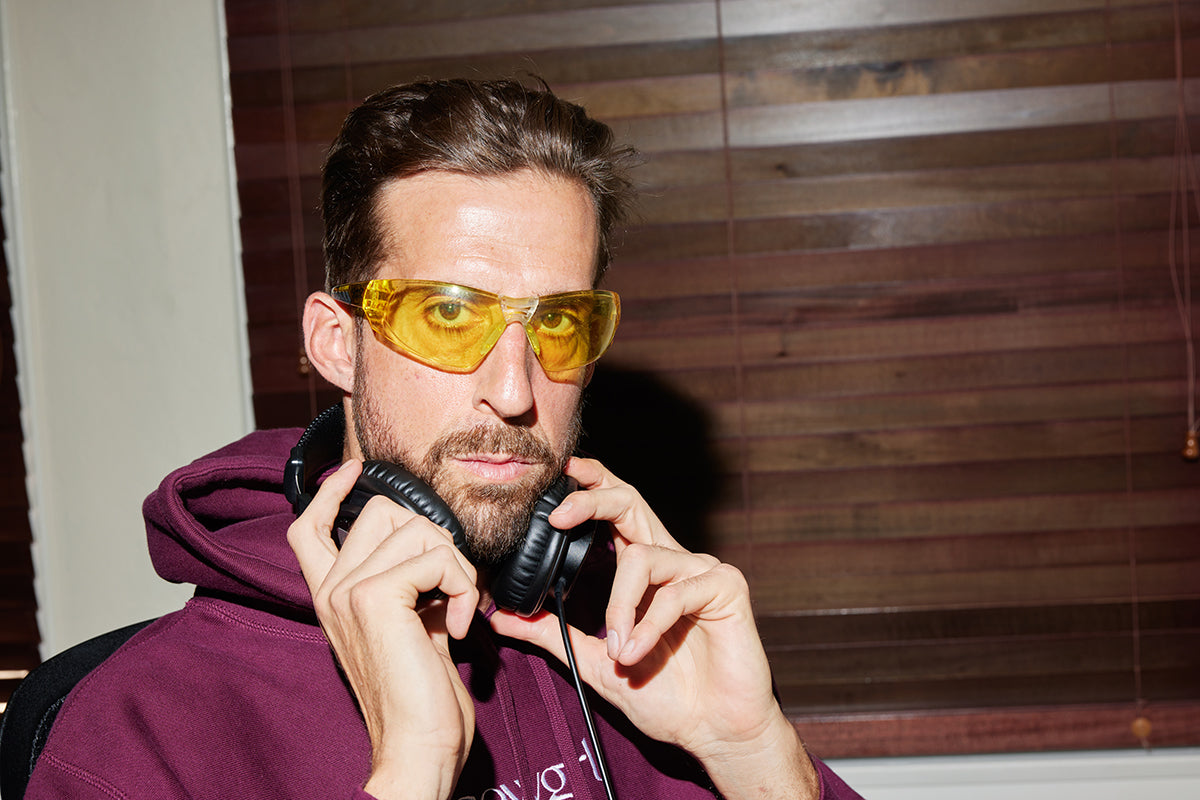
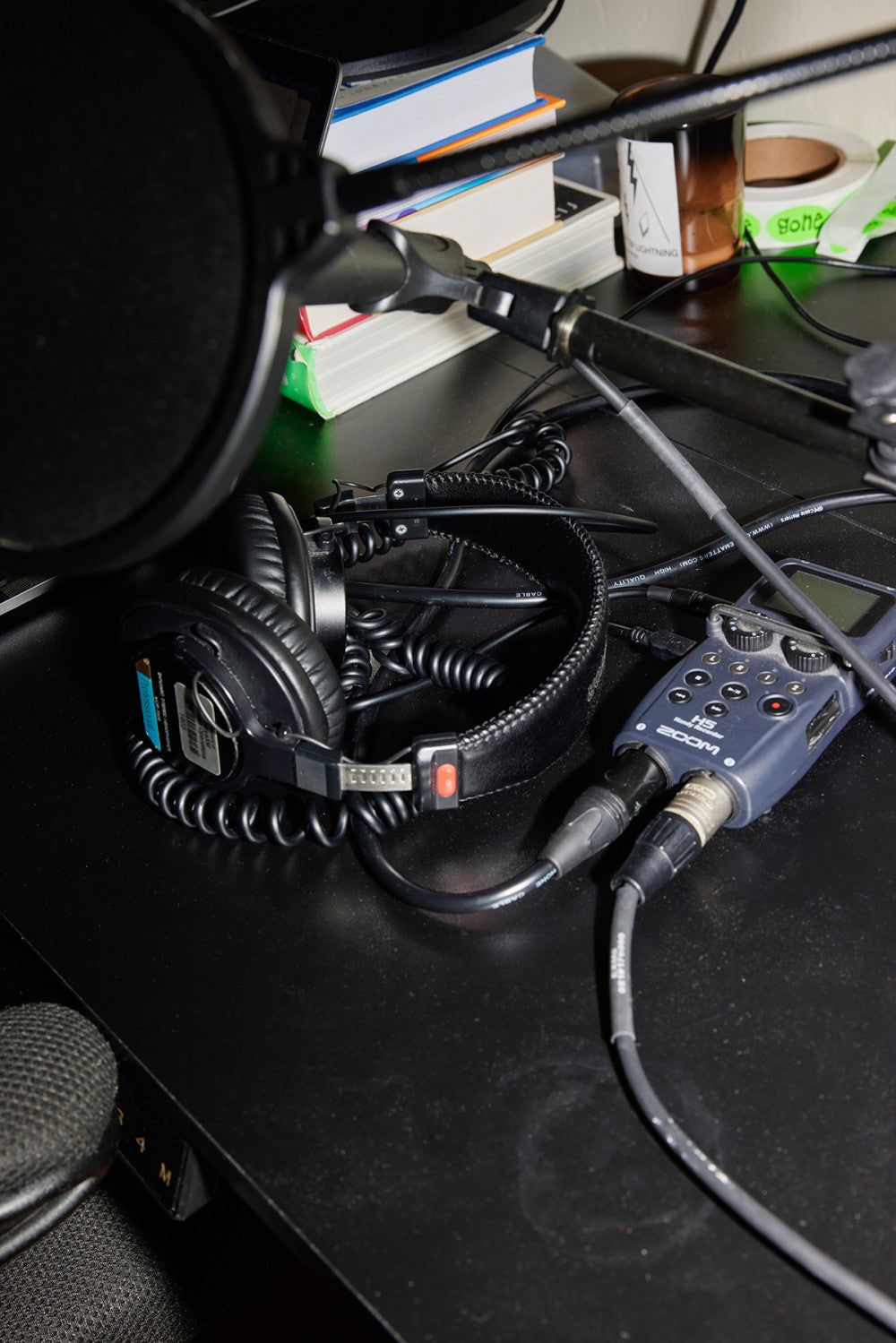
I don’t know, maybe being a bro isn’t so bad.

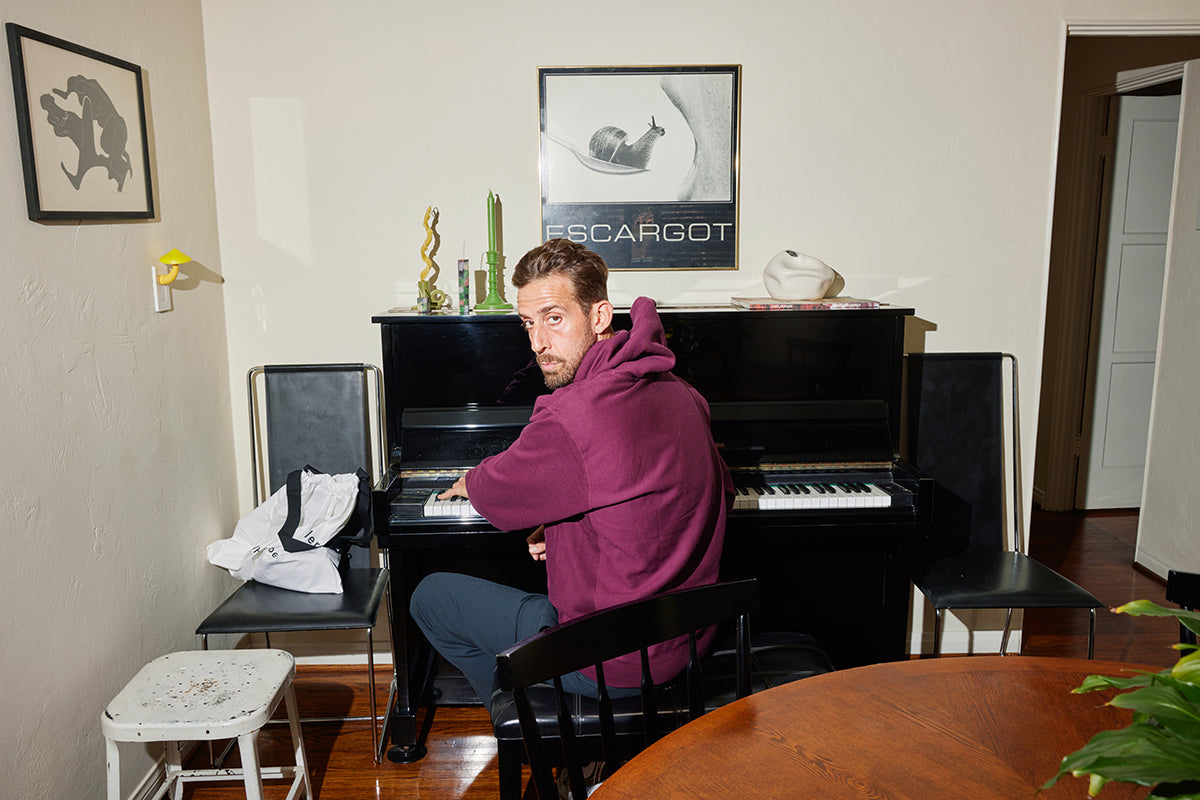
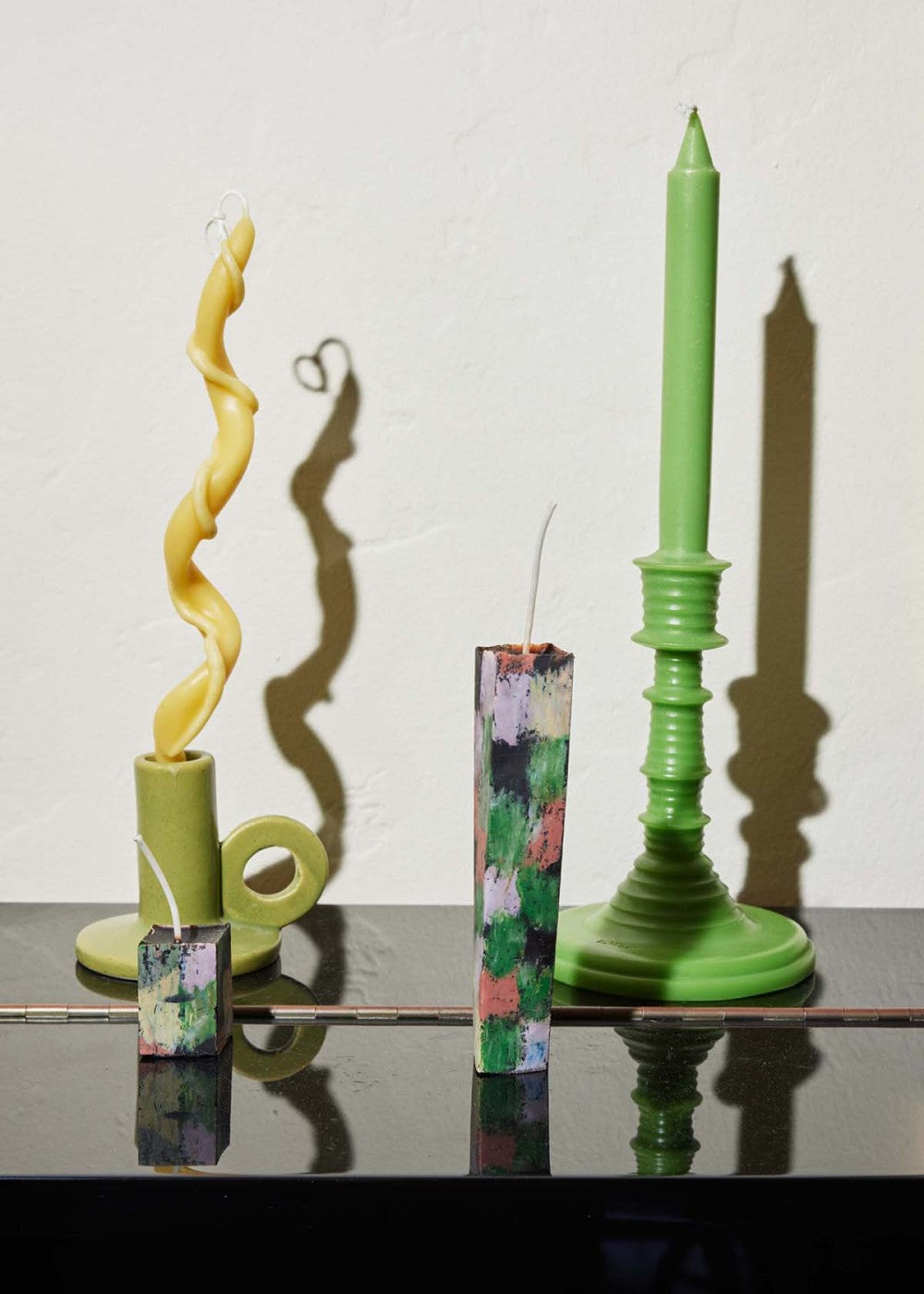
I’m really fascinated by people who almost always give a bad interview.
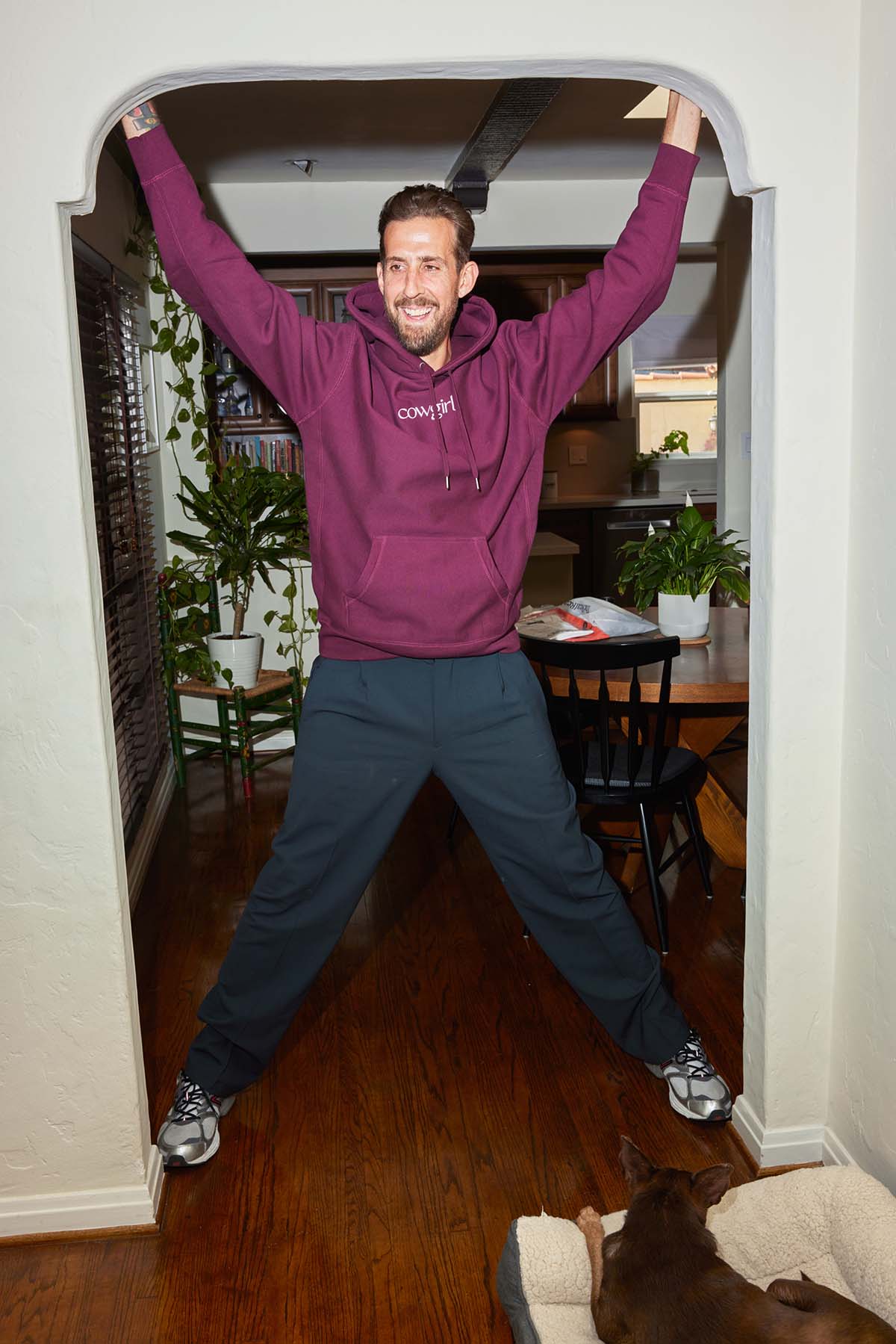
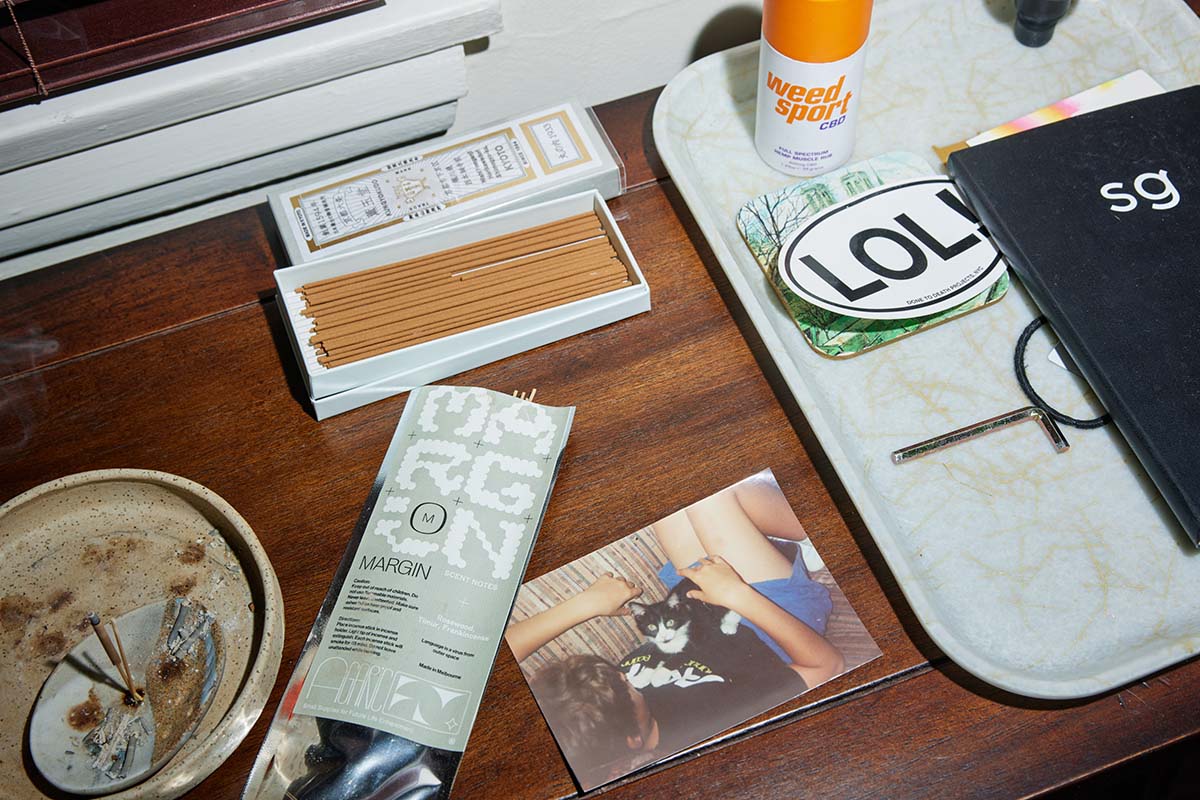
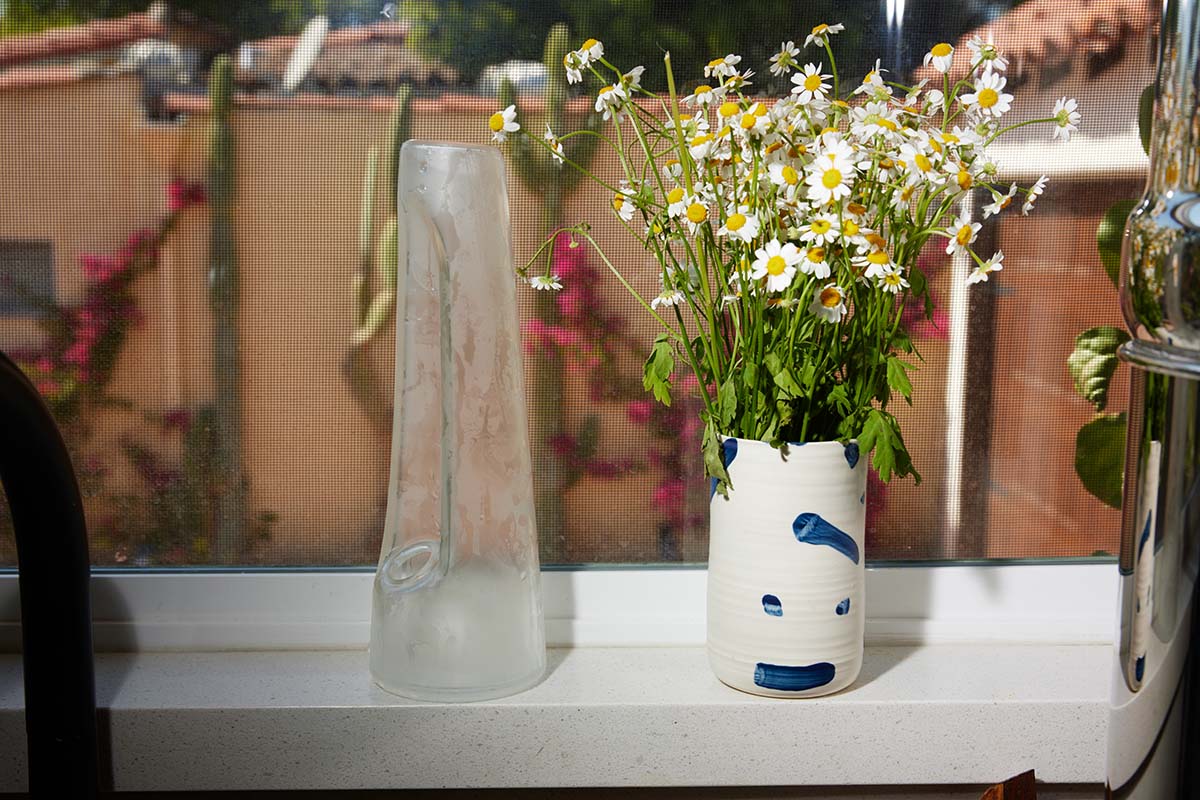
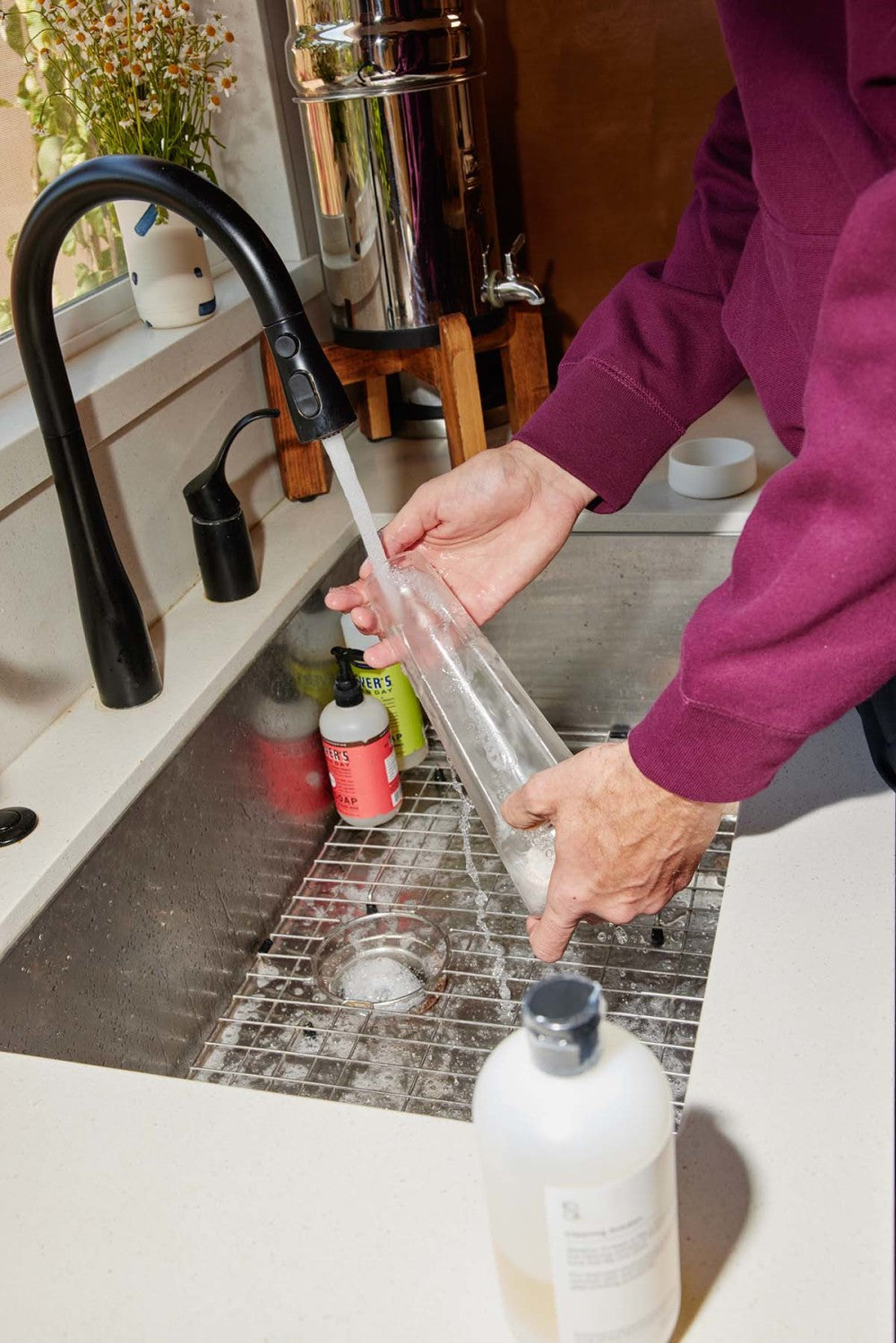
Smoking weed and being vegan when I was younger were probably the two biggest catalysts for me getting into cooking.
